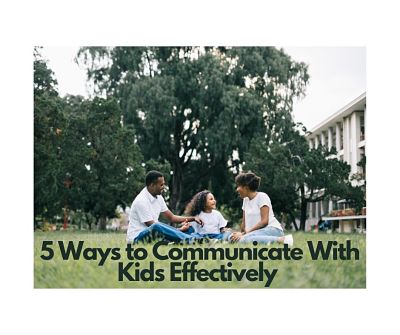Unlocking a Brighter Future: The Profound Benefits of Child Counseling
Childhood is a time of wonder, discovery, and growth, but it can also be a period of challenges and uncertainties. Every child navigates a unique journey, facing various emotional, social, and psychological hurdles along the way. In such moments, child counseling emerges as a guiding light, offering a range of invaluable benefits that foster emotional well-being, resilience, and personal growth. In this blog post, we’ll delve into the transformative advantages of child counseling and explore how it can unlock a brighter future for the youngest members of our society.
Emotional Expression and Regulation
Children often lack the verbal skills and emotional vocabulary to express their feelings and concerns effectively. Counseling provides them with a safe and non-judgmental space to articulate their emotions, whether it’s sadness, anger, fear, or confusion. By learning to recognize and express their feelings, children develop essential emotional regulation skills that empower them to cope with challenges in healthier ways.
Enhanced Self-Esteem and Confidence
Childhood experiences significantly shape a child’s self-esteem and self-worth. Through counseling, children can explore their strengths, talents, and unique qualities, which in turn fosters a positive self-image. A skilled counselor helps children identify and challenge negative self-perceptions, allowing them to develop a strong sense of self-confidence that lays the foundation for a more resilient future. Cognitive Behavioral Therapy can improve self-esteem and positive self-talk.
Effective Communication Skills
Clear and effective communication is a crucial life skill. Child counseling equips young minds with the tools to express themselves, their needs, and their boundaries assertively and respectfully. These communication skills extend to interactions with family, peers, and authority figures, setting the stage for healthier relationships throughout their lives.
Coping Strategies and Problem-Solving
Childhood is peppered with challenges, both big and small. Learning effective coping strategies early on empowers children to navigate stressors and setbacks with grace. In counseling, children discover a repertoire of coping mechanisms that suit their individual needs, including mindfulness, relaxation techniques, and creative outlets like art or play therapy. Moreover, they develop problem-solving skills that enable them to tackle challenges with resilience and confidence.
Social and Emotional Intelligence
Navigating complex social dynamics and understanding others’ emotions are vital skills for any child. Child counseling helps children develop empathy, emotional intelligence, and social awareness, fostering better relationships with peers and family members. These skills are essential for successful collaboration, teamwork, and maintaining healthy friendships throughout their lives.
Healing from Trauma
Children may encounter traumatic events that deeply affect their well-being and development. Child counseling provides a safe environment for processing and healing from traumatic experiences, allowing children to regain a sense of security and normalcy. Early intervention can significantly reduce the long-term impact of trauma and prevent potential psychological challenges down the road. TF-CBT is well researched and evidence-based treatment for PTSD.
Academic Success
Emotional well-being and academic performance are closely intertwined. Children who receive counseling are better equipped to manage stress and anxiety related to schoolwork. By addressing underlying emotional challenges, child counseling enhances a child’s ability to focus, concentrate, and engage in the learning process, ultimately paving the way for improved academic achievement.
Conclusion
Child counseling is a profound investment in a child’s emotional and psychological well-being. By offering a space for emotional expression, confidence-building, communication skill development, and trauma healing, counseling empowers children to navigate life’s challenges with resilience and grace. The benefits of child counseling extend far beyond childhood, influencing future relationships, academic success, and overall happiness. As parents, caregivers, and educators, it is our responsibility to recognize the importance of child counseling and provide our young ones with the support they need to thrive.

Jeff LaPonsie LMSW
Jeff LaPonsie is a clinical social worker at Kalamazoo Child and Family Counseling, PLLC. He provides counseling to children and families in the Kalamazoo, Portage, Mattawan, and South West Michigan areas. He is passionate about helping challenging children and frustrated parents. Jeff has over seven years of experience working with at-risk youth. His clinical expertise includes working with children with behavioral, anxiety, attachment, and trauma-related disorders.




Recent Comments